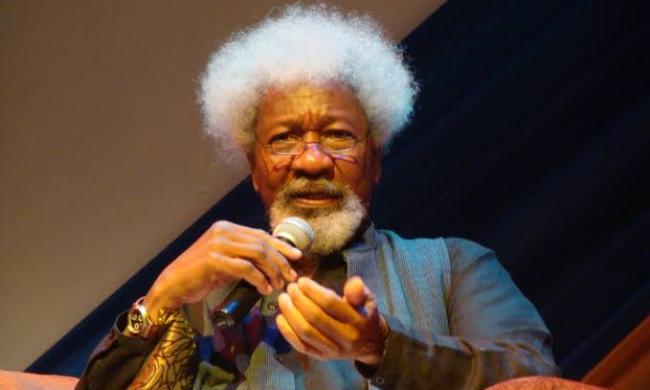
Nobel laureate Prof. Wole Soyinka has criticized President Bola Tinubu’s recent address for not addressing the violent crackdown on #EndBadGovernance protesters by security agencies. In a statement released on Sunday, Soyinka expressed his disappointment with Tinubu’s failure to acknowledge the issue.
The #EndBadGovernance protests entered their fourth day on Sunday, as demonstrators continued to express their frustration over the country’s worsening economic conditions, rising poverty, and poor governance.
Soyinka stated, “I set my alarm clock for this morning to ensure that I did not miss President Bola Tinubu’s impatiently awaited address to the nation on the current unrest across the nation. His outline of the government’s remedial action since inception, aimed at warding off just such an outbreak, will undoubtedly receive expert and sustained attention both for effectiveness and in content analysis. My primary concern, quite predictably, is the continuing deterioration of the state’s seizure of protest management, an area in which the presidential address fell conspicuously short.”
He continued, “Such short-changing of civic deserving, regrettably, goes to arm the security forces in the exercise of impunity and condemns the nation to a seemingly unbreakable cycle of resentment and reprisals. Live bullets as state response to civic protest – that becomes the core issue. Even tear gas remains questionable in most circumstances, certainly an abuse in situations of clearly peaceful protest. Hunger marches constitute a universal S.O.S, not peculiar to the Nigerian nation. They belong indeed in a class of their own, never mind the collateral claims emblazoned on posters.”
Soyinka highlighted the importance of these protests as a signal to the government of public desperation. He lamented the state’s violent response to the ongoing hunger marches, which he said is a regression reminiscent of pre-independence colonial disdain.
“The tragic response to the ongoing hunger marches in parts of the nation, and for which notice was served, constitutes a retrogression that takes the nation even further back than the deadly culmination of the watershed ENDSARS protests. It evokes pre-independence – that is, colonial – acts of disdain, a passage that induced the late-stage pioneer Hubert Ogunde’s folk opera BREAD AND BULLETS, earning that nationalist serial persecution and proscription by the colonial government.”
Soyinka also noted that Nigeria’s security agencies should be aware of alternative, more civilized approaches to managing protests. He referred to the 2022/23 Yellow Vest movement in France as a model, where police did not resort to lethal force even during confrontations.
“The serving of bullets where bread is pleaded is ominous retrogression, and we know what that eventually proves – a prelude to far more desperate upheavals, not excluding revolutions. The time is long overdue, surely, to abandon, permanently, the anachronistic resort to lethal means by the security agencies of governance. No nation is so under-developed, materially impoverished, or simply internally insecure as to lack the will to set an example. All it takes is to recall its own history, then exercise the will to commence a lasting transformation, inserting a break in the chain of lethal responses against civic society.”
He suggested that today’s protesters might consider adopting key songs from Hubert Ogunde’s “BREAD AND BULLETS” to instill a sense of shame in the continuing failure to move beyond colonial-era methods.
“One way or the other, this vicious cycle must be broken,” Soyinka concluded.
Join our WhatsApp channel for more updates.